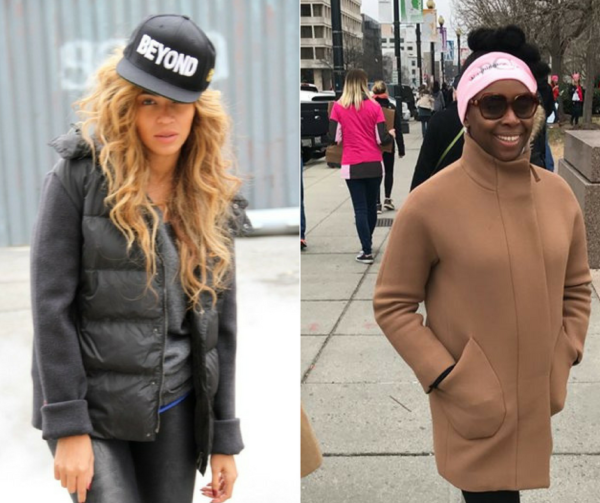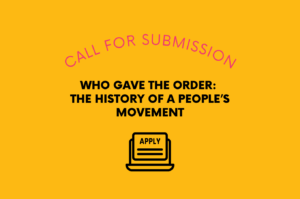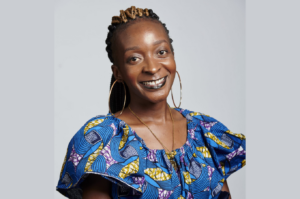It all started when the Dutch newspaper de Volkskrant published the excerpt of an interview in which Adichie was quoted as saying: “Beyonce’s feminism is not my feminism.” Bait for Beyonce fans, bait for anti-feminists. The statement was widely read as Adichie throwing some serious shade on Beyonce. African social media communities erupted in a heated debate in which Beyonce’s fans and Adichie’s supporters were locked in a bitter war of words. [read here if you missed it.]
Now, in a recent Facebook post, Adichie tells the full story. She says that she was quoted out of context. The newspaper, deliberately released a portion of the interview in English as “click-bait.” The full interview was eventually published but in Dutch and, as a result, unavailable to the vast majority of English readers.
Read the full post below.
“It Doesn’t Happen Here, So We Don’t Have To Take It Seriously” PART ONE
October 2016. The Dutch edition of WE SHOULD ALL BE FEMINISTS had just been published. I was scheduled to go to Amsterdam on book tour, and had agreed to do a few press interviews by telephone before my trip.
The first was with a reputable journalist at a reputable newspaper who asked me about Beyonce, if I really believed her to be feminist, especially as she and I did not seem very similar in our concerns.
I said I did. I said I believed there were different feminisms, that all were valid, that we start from the same basic premise of equality but have different focuses, and that my feminism was different from hers. I said Beyonce focused on the idea of men doing right by women – which reflected the reality of the lives of millions of women all over the world, women who put men at the center of their lives.
I said I wished this reality wasn’t so. I wished women would not devote so much to men who did not reciprocate this devotion, because it created an unhealthy cycle of self-shrinking dependence.
This was obviously a criticism not of Beyonce’s feminism but of a patriarchal reality.
I said that I believed Beyonce, in the world of celebrities, was a cultural force for good. I said I resented how she was often policed by people (mostly journalists and academics, judging by their questions to me) who seemed to think that a commercial musician could not also genuinely believe in gender equality. I said that she was in charge of her life and her career and I found that admirable. I said I thought she was lovely.
A few days later the newspaper put up a short excerpt from the interview, in English, and gave it the headline ‘Beyonce’s Feminism is not my Feminism.’
It was click-bait. A cynical headline.
Headlines matter because headlines – especially in today’s world where many read with reduced attention spans – shape a reader’s approach to an article.
I wrote and complained to the journalist – a woman whose questions and demeanor during the interview had been thoughtful and intelligent.
I told her the headline was sensationalized and manipulative, that it deliberately misrepresented my intent, and that the excerpt itself was incomplete and lacked context.
She wrote back and assured me that the full interview, to be published in Dutch, had fully captured what I had said and would have a different headline.
The full article in Dutch was, in her words, “way more nuanced, as your opinions are.” The Dutch headline was, she said: ‘A crystal clear argumentation on complete equality.’
But of course the damage was done. How many people who read the English excerpt would read the full Dutch version?
And why would a Dutch newspaper, after conducting an interview I had been told would be published in Dutch, make the odd choice of publishing online a small, sensationalized English excerpt?
To be fair, the journalist probably didn’t write that headline, as many journalists don’t write their own headlines. An editor must have done so. And perhaps she didn’t make the decision of pulling something out of context and publishing it in English, while leaving out the rest to be published in Dutch.
I am not interested in naming names, because I am concerned not with individual journalists or editors but with a certain kind of corporate ‘anxiety journalism’ in which they are employed and whose rules they are compelled to follow.
The anxiety of getting as many clicks as possible. The anxiety of not being entertaining or controversial enough. The anxiety of fearing their own irrelevance in an age of youth-pandering, shallowness-rewarding advertising.
So that journalism becomes an exercise not in the service of truth but in the service of numbers. Especially when covering personalities. (Take, for example, the coverage of Madonna’s speech at the Women’s March. Most of the headlines, and even the news stories, were about her ‘blowing up the white house,’ when in fact her speech was about rejecting violence and choosing peaceful means of protest.)
Real controversies should of course be reported but invented ones are disingenuous. That headline ‘Beyonce’s Feminism is not my Feminism’ was about giving a false impression of antagonism. It was about seeking to create the illusion of an attack in order to generate publicity. And it traded in that most misogynistic of ideas: the ‘catfight.’
I do not believe in a magical idea of ‘sisterhood’ where all women agree with one another because they are women. Disagreements between women are normal. But I do strongly quarrel with the invention of animosity between women where there is none.
~CNA.
Beyonce’s image by DWNews Recent Celeb Gallery via Flickr.
Adichie’s image via author’s Facebook page.










Catherine O March 01, 2017 08:48
Thanks for this. Reader beware, I suppose, when getting ones news from any source other than the horse's mouth.